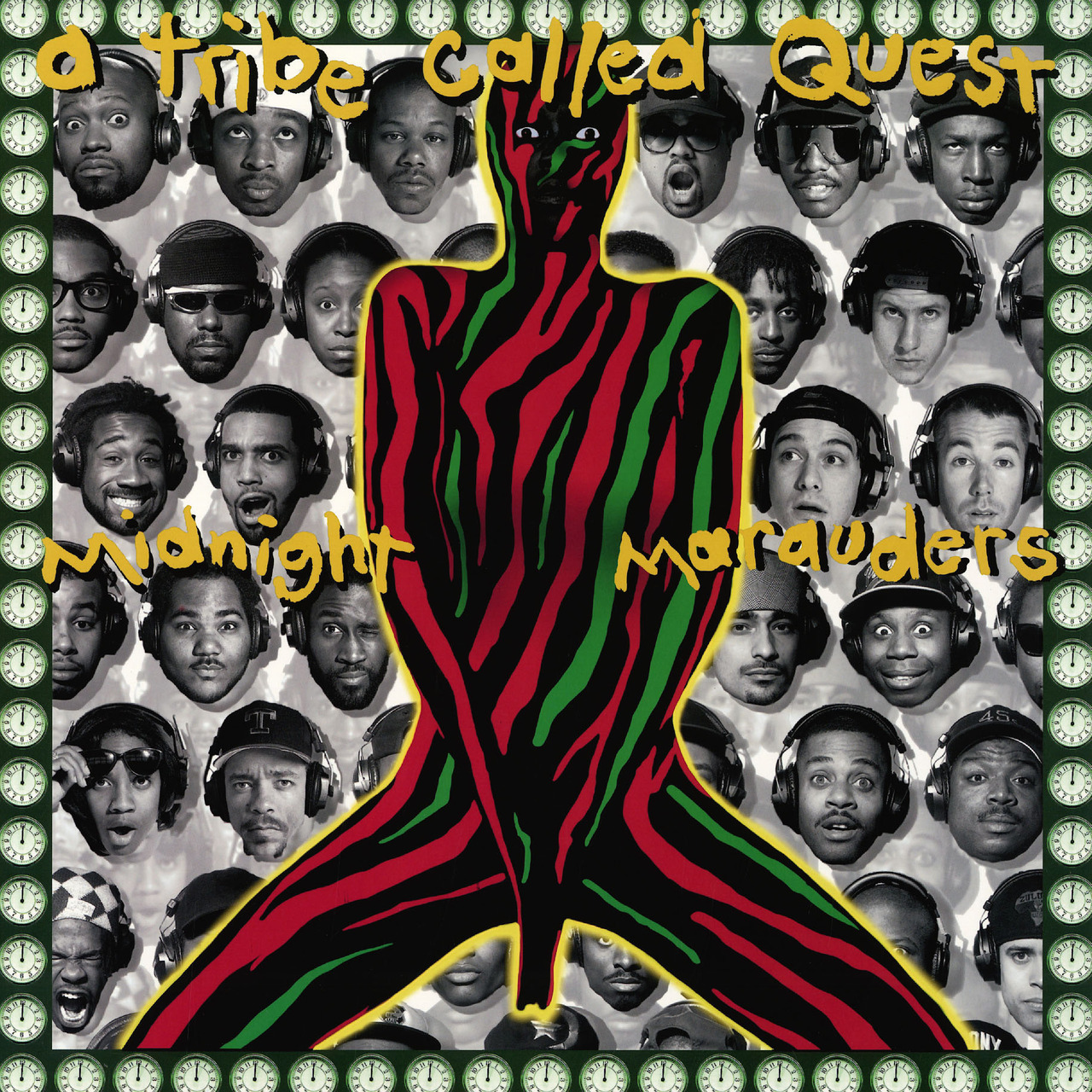On this day in Hip-Hop history, A Tribe Called Quest Released their third studio album Midnight Marauders. As the group’s most popular work, this album marked the height of Hip-Hop’s Afrocentric/hippie movement.
Aside from content, this album’s cover is it’s most distinctive quality. It features a full-frontal portrait of the same black, green, and red woman from the The Low End Theory cover as well as headshots of some of the more well known rappers of the time, including Dr. Dre, Afrika Bambaataa, Busta Rhymes, Chuck D., Ice-T, Kool Moe Dee, MC Lyte, Del Tha Funky Homosapien, P. Diddy, Heavy D, Too $hort, The Pharcyde, The Beastie Boys and more.
With this album, Tribe took a slight step away from their heavy jazz influence to perpetuate a funkier vibe. Ali Shaheed Muhammad’s production sounded more on this album like something you would hear on the radio in the early ’90s (with a Tribe twist of course). The largest change, however, came in the realm of lyricism. Over their four year quest, Q-Tip and Phife Dawg picked up linguistic skills that come full circle on this album. Their cadence, flow, and diction all show signs of improvement along with the length and depth of their metaphors. Although this album features less subject-specific tracks than their previous work, the two show that they have finally figured out how to intrigue the minds of both the Hip-Hop faithful and everyday music listener.
Advertisement
Commercially, Midnight Marauders is the A Tribe Called Quest’s highest-selling album. The album sold over 1,000,000 copies within it’s the first year, making it a platinum hit. It also peaked #70 on the UK album charts, #8 on the Billboard 200, and took the top spot Top R&B/Hip-Hop chart.
A lot of the album’s success is due to its timeless classic of a single “Award Tour” which peaked at #47 on the Billboard Hot 100. Its influence has spanned decades with the track being referenced by the likes of Wale, Kanye West, Common, Azealia Banks, and Justin Timberlake.
